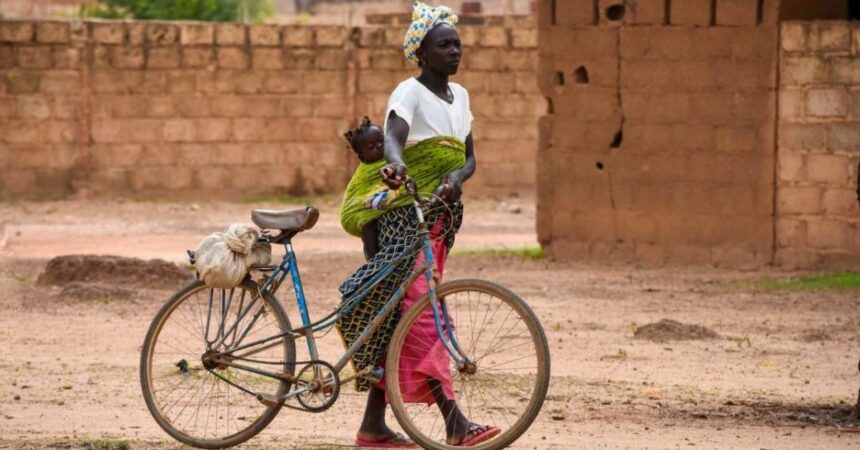Preventing Maternal Mortality in West Africa: A Call to Action
[ Click for English Version ]
By Aparajita Ramakrishnan, Gates Foundation, and Marie Ba, Ouagadougou Partnership
Every two minutes, a woman dies from pregnancy or childbirth-related complications. The impact of maternal mortality extends far beyond the delivery room. The futures of children, families, communities, and economies are compromised with each premature death.1,2
In the member countries of the West African Economic and Monetary Union (WAEMU), maternal mortality rates are the highest in the world. Yet, the majority of these deaths can be prevented through appropriate interventions: access to modern contraceptives, presence of qualified personnel during childbirth, and quality prenatal and postnatal care. It is urgent to ensure that women and girls in the region have access to these essential services, as well as support to make informed choices for their health and future — thereby increasing their chances of survival.3,4
Preventing Millions of Women and Girls from Reaching Their Full Potential:
The Cost of Inaction
Research shows that only 13% of married women aged 15-49 in West Africa use family planning methods. This is exacerbated by the lack of family planning for 26% of women in the region.5
There are multiple reasons for this — cultural stigmas, financial constraints, lack of information — but the consequences are clear: unplanned pregnancies put lives at risk and perpetuate a cycle of economic instability.
Limited access to contraceptives in West Africa is also hindered by disruptions in supply chains. Delays in procurement, inadequate storage facilities, and logistical bottlenecks often lead to stockouts in clinics and pharmacies, especially in rural areas. Dependence on international suppliers increases uncertainty, with global shortages and the cessation of funding by some major aid organizations to low- and middle-income countries. Without consistent access, women are more vulnerable to unintended pregnancies, unsafe abortions, and health complications. All of this underscores the urgency of strengthening regional supply networks and investing in local manufacturing. In this context, innovative partnerships to drive change are more necessary than ever.
Multiplying Proven Solutions
The good news is that change is possible. Several countries in West Africa have shown that significant progress can be made when governments, civil society, and the private sector come together to advocate for family planning and maternal health. For example, the Ouagadougou Partnership has played a pivotal role in expanding access to family planning in nine West African countries, with over 3.8 million additional women and girls using modern contraceptives since 2011. Yet, millions more still lack access.6 It is therefore crucial to continue investing in regional supply chains and local production to drastically reduce unintended pregnancies, unsafe abortions, and health complications.
Transforming Commitments into Sustainable Change
For two decades, the Gates Foundation has been working with governments, community organizations, advocacy groups, and private sector actors to change the narrative around women and girls in West Africa.
Ensuring that every woman in the region has access to quality family planning and maternal health services is an achievable goal — provided we act with determination. Governments must prioritize these initiatives in terms of funding and implementation, while the private sector must provide innovative solutions to expand access.
This is a pivotal moment. Investing in women’s health today is about improving individual lives and laying the foundation for a stronger, more resilient West Africa.








